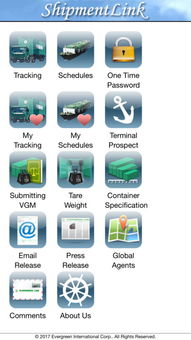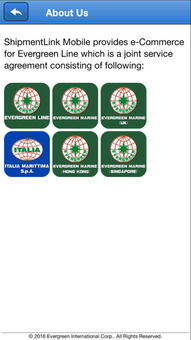Understanding Shipment Link: A Comprehensive Guide
When it comes to logistics and supply chain management, the term “shipment link” plays a crucial role. It refers to the connection between various stages of the shipping process, ensuring that goods are transported efficiently and effectively. In this article, we will delve into the different aspects of shipment link, providing you with a detailed and multi-dimensional understanding of this essential concept.
What is a Shipment Link?

A shipment link is essentially the chain of events that occur during the transportation of goods from the point of origin to the final destination. It encompasses various stages, including packaging, loading, transportation, unloading, and delivery. Understanding each link in this chain is vital for ensuring a smooth and efficient shipping process.
Stages of a Shipment Link

Let’s take a closer look at the different stages involved in a shipment link:
| Stage | Description |
|---|---|
| 1. Packaging | Goods are packaged in a way that ensures they remain intact during transportation. |
| 2. Loading | Goods are loaded onto the transportation vehicle, such as a truck, train, or ship. |
| 3. Transportation | Goods are transported from the origin to the destination using various modes of transportation. |
| 4. Unloading | Goods are unloaded from the transportation vehicle at the destination. |
| 5. Delivery | Goods are delivered to the final recipient, ensuring they reach the intended destination. |
Importance of Shipment Link

The shipment link is crucial for several reasons:
-
Efficiency: A well-organized shipment link ensures that goods are transported quickly and efficiently, reducing the time and cost associated with shipping.
-
Reliability: By maintaining a strong shipment link, companies can ensure that goods are delivered on time and in good condition.
-
Cost-effectiveness: An efficient shipment link can help reduce transportation costs, as it minimizes the need for additional resources and labor.
-
Customer satisfaction: A reliable and efficient shipment link contributes to customer satisfaction, as it ensures that goods are delivered promptly and in perfect condition.
Challenges in Shipment Link
While the shipment link is essential for logistics and supply chain management, it also comes with its own set of challenges:
-
Logistics complexity: The shipment link involves multiple parties, including suppliers, manufacturers, carriers, and customers, making it a complex process.
-
Transportation delays: Delays in transportation can occur due to various reasons, such as traffic congestion, adverse weather conditions, or equipment failures.
-
Cost management: Ensuring an efficient shipment link requires careful cost management, as transportation costs can be significant.
-
Regulatory compliance: Companies must comply with various regulations and standards, which can be challenging to navigate.
Best Practices for Managing Shipment Link
Here are some best practices for managing the shipment link effectively:
-
Optimize transportation routes: By analyzing data and utilizing advanced technologies, companies can identify the most efficient transportation routes.
-
Implement real-time tracking: Real-time tracking allows companies to monitor the progress of shipments and address any issues promptly.
-
Utilize technology: Advanced technologies, such as GPS and IoT, can help streamline the shipment link process.
-
Collaborate with partners: Building strong relationships with suppliers, manufacturers, and carriers can help ensure a smooth and efficient shipment link.
-
Regularly review and improve processes: Continuously reviewing and improving the shipment link process can help identify areas for improvement and enhance overall efficiency.
In conclusion, the shipment link is a critical component of logistics and supply chain management. By understanding its various stages,

















